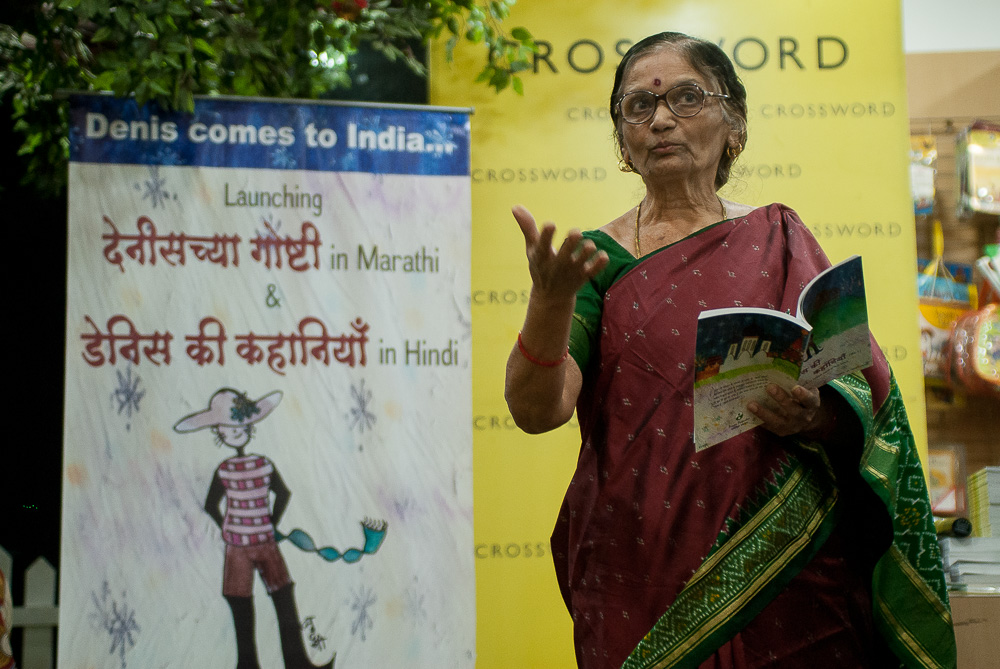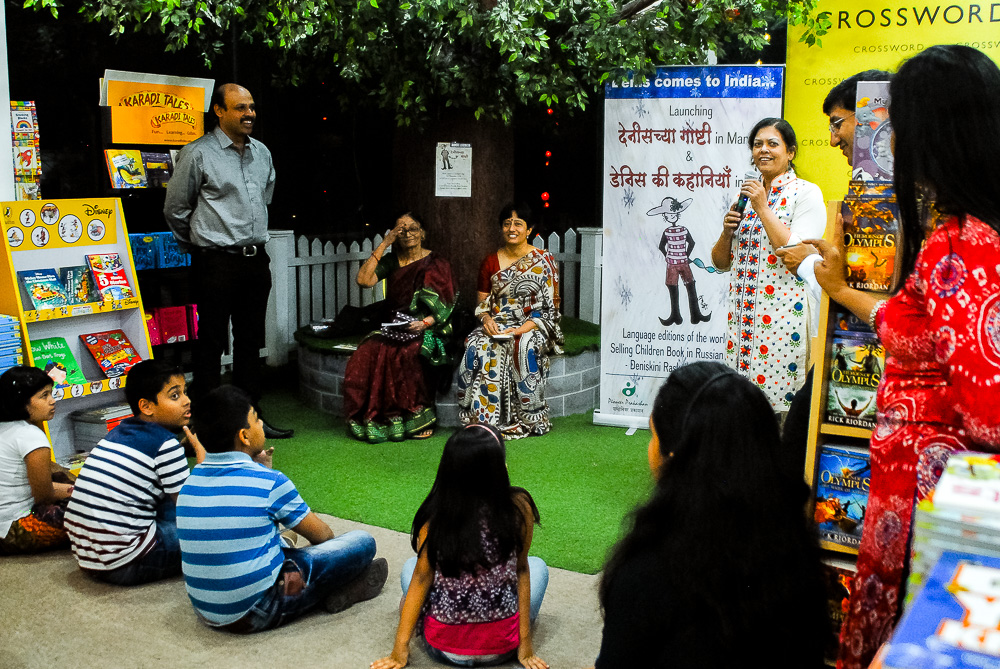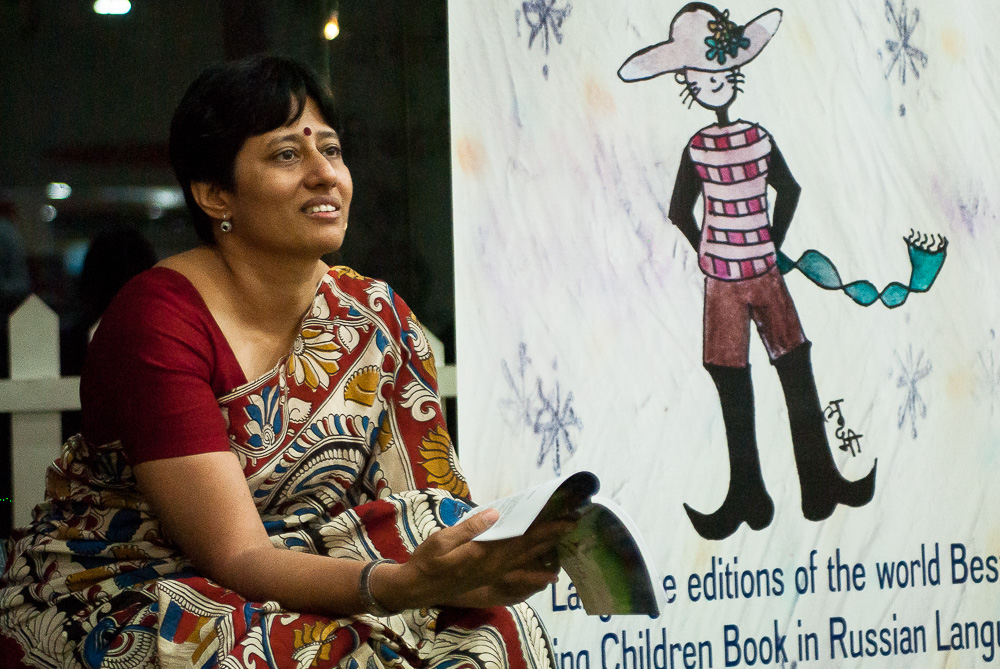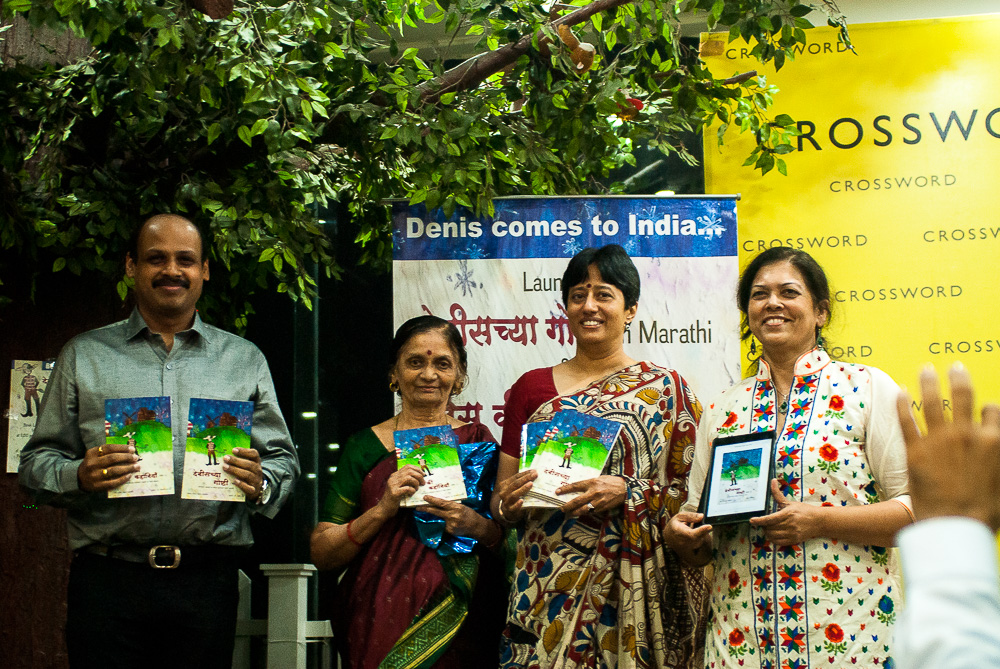Famed Russian children’s book launched in Indian languages

Indian translator Dr. A. Charumati Ramdas.
Alexandra KatzA collection of short stories for children, “Deniskiny rasskazy,” by Soviet writer Viktor Dragunsky, has been translated for the first time directly from Russian into Hindi and Marathi. The translated works were launched in Pune on November 14th, celebrated as Children's day in India, to coincide with the birthday of India's first Prime Minister Jawaharlal Nehru.
Viktor Dragunsky, the well-known children’s author, was born in New York in 1913 to a family of Russian immigrants who later moved back to Soviet Union. Before he started writing “Deniskiny rasskazy” in 1959, Dragunsky worked as a theatre and movie actor, as a clown in a circus, wrote numerous satires, humorous stories, songs and screenplays.
Written over the period of the 1960s, “Deniskiny rasskazy” (‘Deniskin stories’, also known as The Adventures of Dennis) is a book of short stories about Denis Korablev, an 8 year-old Russian boy living with his family in Moscow in the late 1950s and early 1960s. The stories describe the everyday life of the boy, his parents and friends; a life full of fascinating interactions, curious puzzles and surprising discoveries.

The prototype of Denis Korablev was the author’s own son Denis. One of the stories in the book also mention Dragusky’s younger child – daughter Ksenia. Today, writer and journalist Denis Dragunsky and playwright and prose writer Ksenia Dragunskaya hold the copyright of their father’s works.
After being contacted by Indian translators Dr. A. Charumati Ramdas and Dr. Anagha Bhat, the Dragunskys gave their permission to release all 61 stories of “Deniskiny rasskazy,” translated from Russian into Hindi and Marathi in India, both in print and electronic formats (e-book).
Although this is not the first time “Deniskiny rasskazy” has been published in India – some stories were published during the Soviet era – this is the first time when all 61 stories will be published, and the first time the book has been translated directly from Russian to Hindi and Marathi, and not from English. This, according to translators and publishers, allows the style of the author and the cultural context to be imparted better, making the book more exciting and relevant to the readers.
The publisher, Pune-based Pioneer Prakashan, has divided the book into three parts. The first volume containing 20 stories has a print run of 1000 copies (each in Hindi and Marathi) and will be distributed in Maharashtra and other regions of India. The paperback book will also be sold from e-commerce platforms such as Flipkart and Amazon.

“We took this first step and are now working on marketing the book and taking it to the masses, because release of the book is just the beginning of a long journey. It will take time for it to reach more readers,” Anand Phatak, founder of Pioneer Prakashan told RIR. “Meanwhile, we are preparing to release another two volumes of “Deniskiny rasskazy” by end of this year. We also will be looking for various kinds of support that the Russian government, cultural organizations or business could provide us to make this book successful in India”.
Phatak said one of the factors for the success for Dragunsky’s book in India could be that Dennis is a well known name in India. “Deniskiny rasskazy” by Dragunsky, was published in India in various languages by Soviet publishers during the Soviet era, and many parents and grandparents in India today remember listening to some of Dragunsky stories when they were children themselves. Indian readers also remember another Dennis – the character ‘Dennis the Menace’, a newspaper comic strip by Hank Ketcham, based on the interaction of a five-year-old boy with his parents, neighbours and friends.
The e-book version of “Deniskiny rasskazy” is now available at bhashavidha.com, a digital publishing platform started by Vidula Tokekar, Founder and Director of Translation Panacea, a company that provides translation services to book publishers. She said only four per cent of readers in India read in English language. The rest read in vernacular languages.
Hence, Bhashavidha focuses on digitizing popular books as well as modern literature in India’s regional languages while allowing translators and authors to publish their works on this self-publishing platform. This way, digital publication makes modern literature in vernacular languages as well as literature translated from foreign languages to Indian languages reach a wider target audience all over the county.

Currently, there are less than a hundred books by Russian authors, translated mainly from English language into Indian languages, available at Bhashavidha. However, Tokekar notes, the number of books translated directly from Russian language is growing, because of a group of energetic translators working across India and translating classics and modern Russian literature into Hindi, Marathi and other languages.
According to Ramdas, who has been teaching Russian in EFL University, Hyderabad and has previously translated Bulgakov, Pushkin, Chukovsky and many other Russian authors from Russian to Hindi, Russian literature is not widely available in India, especially in vernacular languages. Ramdas is now working on ‘Alye parusa’ (Scarlet Sails) by Alexander Grin.
“We have a double task here. Firstly, we are popularizing Russian literature and children’s literature particularly, and secondly, we are doing it in Hindi and Marathi, and not in English, which is otherwise more common for new children’s books,” Ramdas said.
“Today Russian literature in Indian is mainly represented by Gogol, Chekhov, Pushkin, Tolstoy and Dostoyevsky. A lot of books and authors have been published by Soviet publishers in various Indian languages during the Soviet time, but even then the authors were limited to Russian and Soviet classics. Modern literature was never really represented in India, despite Russia having many interesting authors,” Ramdas added.
Bhatt, professor of Russian and head of the department of foreign languages, University of Pune, who has translated many Russian authors, recalls that since the 1990s, following the disintegration of the Soviet Union, all publications of Russian literature were stopped in India, making Russian literature less available and less popular in the country. “There is a lot of goodwill towards Russian books in India because of this past Soviet era experience,” she said.
Bhatt believes the Russian government could do more to promote Russian literature in general and modern Russian authors in particular by bringing them to India for literature festivals and events, lecture in the universities.
All rights reserved by Rossiyskaya Gazeta.
Subscribe
to our newsletter!
Get the week's best stories straight to your inbox
